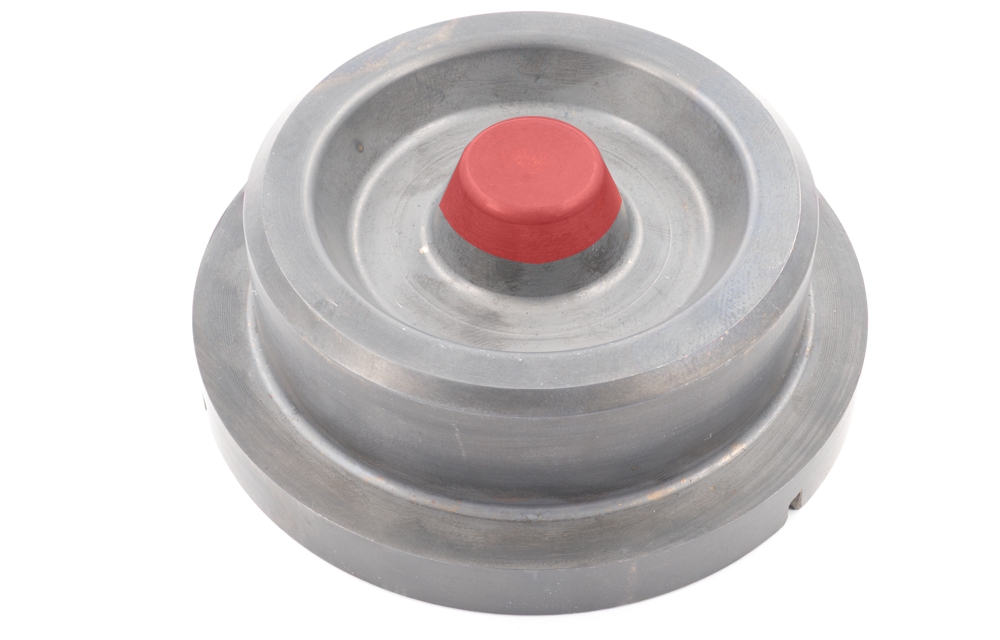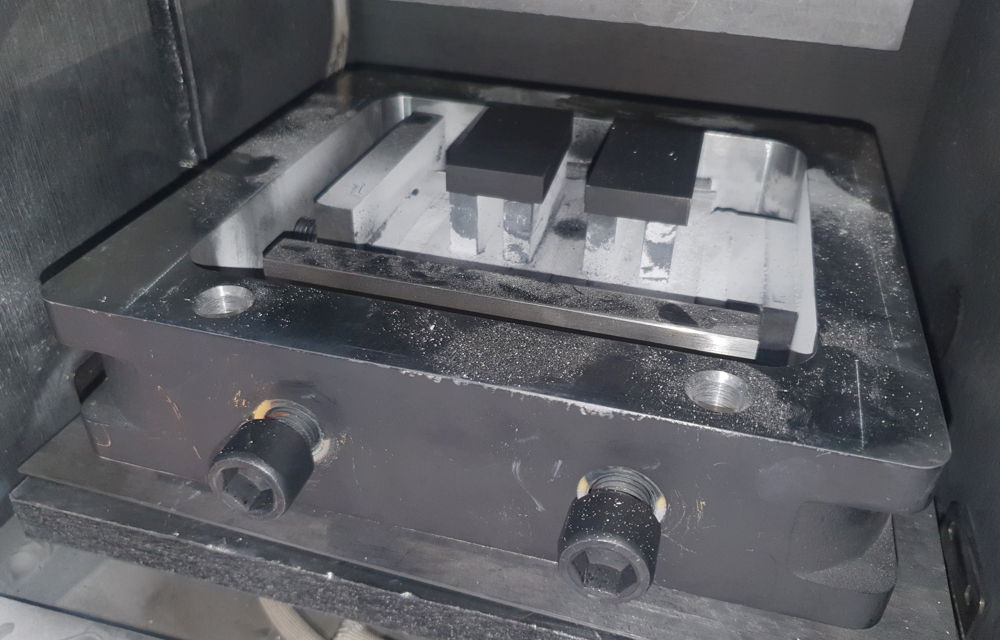Reducing the use of energy and materials is one of the dominant issues in all fields of technology and of high social interest. Not only the conservation of energy raw materials, but also wear-reducing concepts contribute significantly to sustainable productivity.
Stresses and wear in hot forging
Hot forming tools are subjected to high mechanical, thermal, chemical and tribological stresses as a result of the process. One focus at the Institute of Forming Technology and Machines (IFUM) is therefore research into concepts for countering wear-inducing stresses.
A new, innovative approach is the local reinforcement of forging dies using powder metallurgically produced components made of MMC. IFUM is working on this together with the Institut für Werkzeugforschung und Werkstoffe (IFW) of the Forschungsgemeinschaft Werkzeuge und Werkstoffe e.V. and with various industrial companies.
During forging, thousands of components are produced with one tool, resulting in the same number of cyclic loads. The dominant wear phenomenon in this process is abrasion. High stresses during the shaping of the component contour and the formation of the burr usually result in abrasion-induced furrows and notches, which eventually lead to the failure of the tool. To counteract this, coatings with high hardness are applied to the tool surfaces or created directly by modification in the surface layer.
Metal matrix composites (MMC) as tool components
MMC consist of a metal matrix in which special particles are embedded. Since a wide range of material combinations is possible, MMCs are used in a wide variety of applications. Particularly conductive particles, for example, can positively influence the properties of components for the electrical industry. Due to their high hardness, ceramic particles can protect a softer material against abrasive wear.
Currently, the suitability of MMC as wear protection on forging dies is being investigated at IFUM – especially against abrasive wear. The researchers are using tungsten smelting carbide (WSC), tungsten carbide (WC), titanium carbide (TiC) and boron carbide (B4C) as reinforcement particles. Compared to a quenched and tempered hot-work tool steel with a hardness of about 500 HV, the hard materials mentioned have a hardness of more than 2000 HV.
In the forming tool, only the mandrel in the center of the engraving is to be replaced (see Fig. 1). For this purpose, the MMC mandrel, which is powder-metallurgically produced in the FAST process, is to be diffusion-bonded onto a basic tool made of hot-work tool steel.
Initial parameter determination of homogeneous and dense specimens
To determine suitable parameters and possible strengths, samples with hard phases of 5% and 10% were produced in preliminary tests. These were mixed in a powder mixer to allow the components to be distributed as homogeneously as possible in the powder. A multi-part graphite tool was used to sinter the powder (see Fig. 2). Applied boron nitride served to lubricate and prevent adhesion of the powder to the graphite. FAST process was then performed at about 1100 °C to convert the metal matrix to a mushy state.
WSC, WC and TiC were successfully embedded in the matrix as hard phases with homogeneous distribution and good bonding. Almost every hard phase variant could be prepared with a relative density above 93%. However, the B4C particles in the samples partially dissolved, forming pores, despite their high melting point of over 2000 °C (see Fig. 3). Hardness tests and cutting of the specimens using a wet grinder showed a loss of the targeted wear resistance.
Hardness testing of the WC, WSC and TiC specimens showed no reduced hardness of the carbides and a good integration into the steel matrix, predicting positive service behavior.
From research to industrial use
With the help of the results obtained so far, mandrels are now being joined to forming tools and used as forging dies. After exploring suitable MMCs for the local reinforcement of forging dies, these are then used to reinforce industrial tools. The IFUM, IFW and different industrial companies will investigate the application behavior under industrial conditions.


